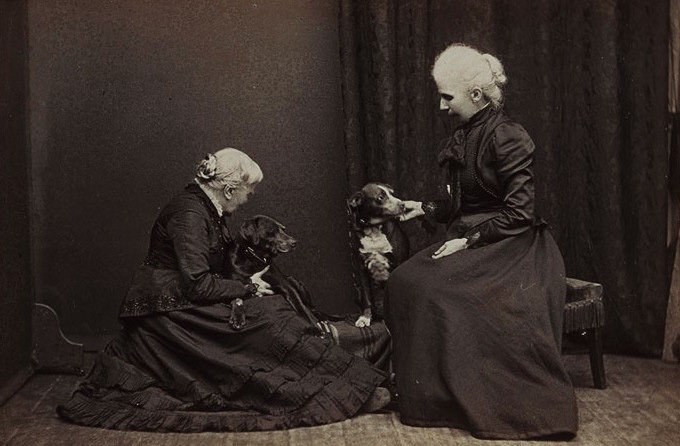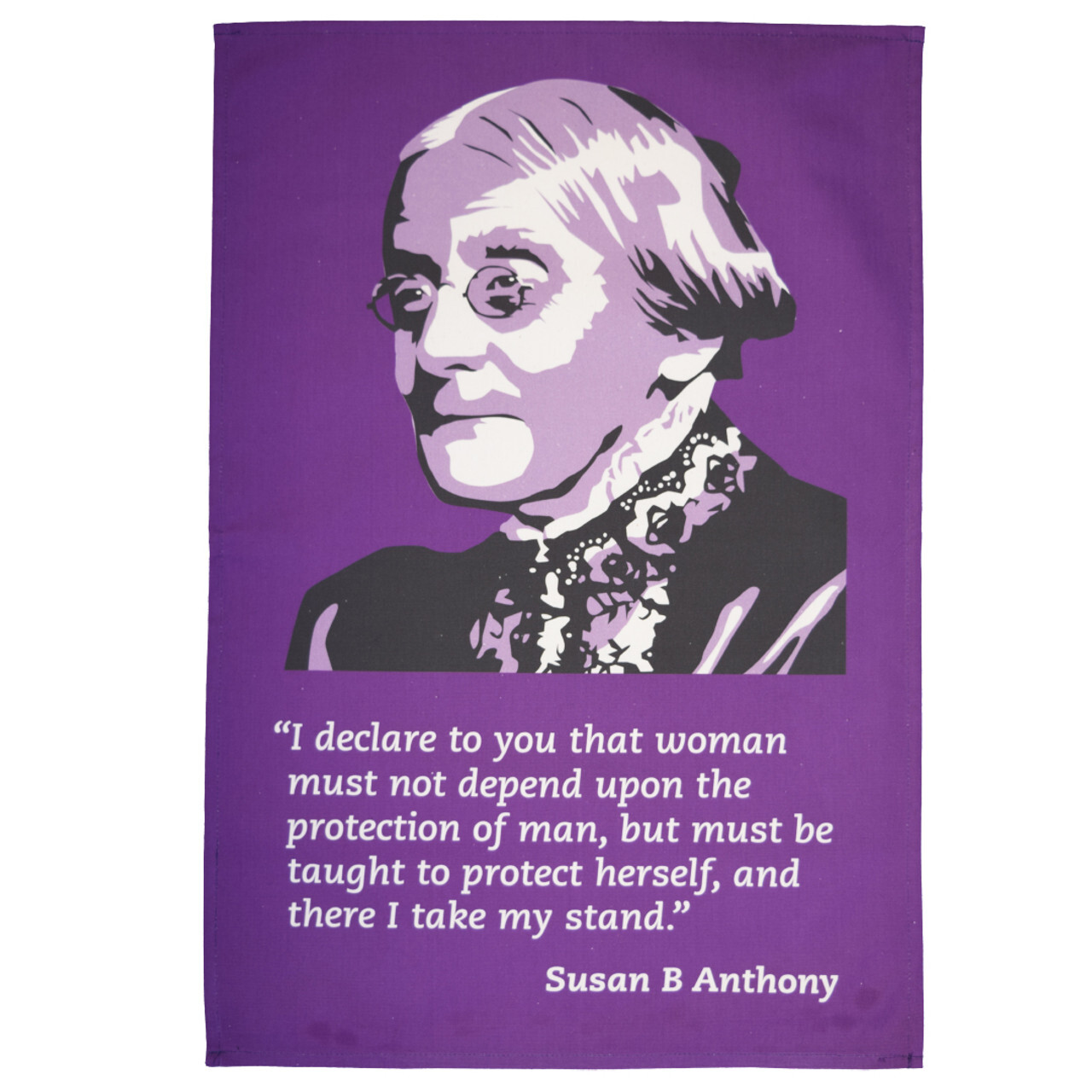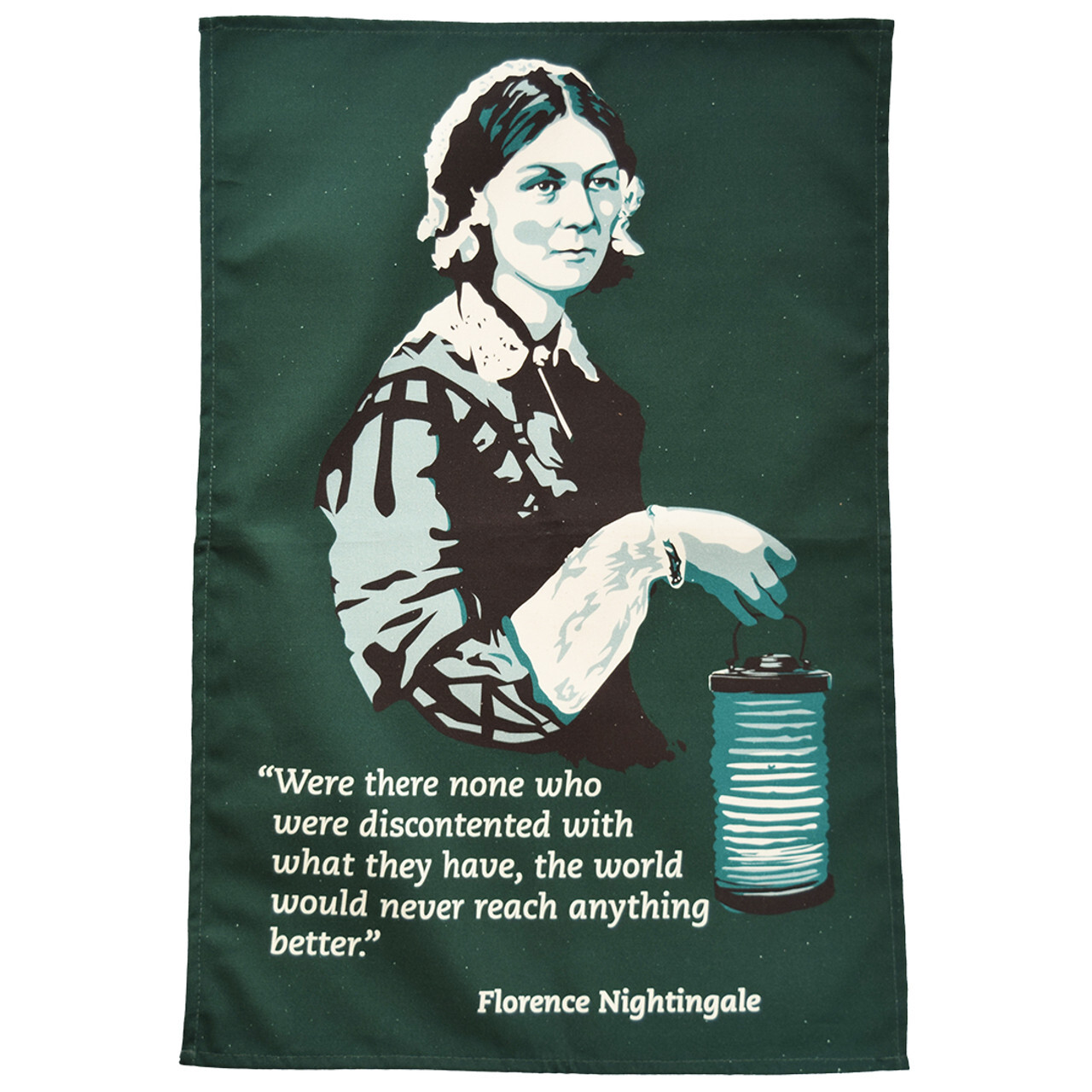We use cookies to make your shopping experience better. By using our website, you're agreeing to the collection of data as described in our Privacy Policy.
Elizabeth Blackwell: The English Medic Who Changed America
Elizabeth Blackwell, born on this day in 1821, became the first woman to gain a medical degree in the US. Her struggle against the odds made her an advocate for women's rights.
The first woman medical doctor in U.S. history was... English?!
Elizabeth Blackwell was born in Bristol on this day in 1821 before her family emigrated to New York in 1832.
But as well as being an immigrant, Elizabeth Blackwell also had the virtue of being a progressive.
In a way, that’s unsurprising: wanting to become the first ever woman doctor involved throwing down with nineteenth-century patriarchy.

Above: 1905 photo of an elderly Elizabeth Blackwell with her adopted daughter and dogs
And Elizabeth Blackwell’s willingness to challenge systems of oppression was also a family affair.
Both of her parents were committed to equal education for girls, and they supported the anti-slavery movement in America.
This upbringing instilled a set of radical values in Elizabeth and her siblings (the second ever woman doctor in the U.S. was her sister, Emily, and her brother Henry married the suffragist Lucy Stone).
While working as a teacher during the 1840s, Elizabeth kept up her support for abolition and women’s rights – two movements that were closely entwined in the antebellum U.S.
In fact, Elizabeth quit a teaching job in Kentucky due to the presence of slavery in the state, and she tried to launch a Sunday School for enslaved children in South Carolina.
It was in 1847 that Elizabeth began trying to train as a doctor in earnest.
Anticipating the opposition of the entirely male medical profession, Blackwell wrote:
"As to the opinion of [other] people, I don’t care one straw personally..."
The mid-19th century was a time of firsts for American women - Susan B. Anthony, for example, became the first to vote (illegally) in a US Presidential election
See the Susan B. Anthony tea towel
After enduring a barrage of rejections, justified by the sexist assumption that women were somehow incapable of medical science, Elizabeth managed to get accepted to the Geneva Medical College in New York.
She was a talented and hard-working medic, spending her summer breaks providing healthcare for the impoverished working class of Philadelphia, where she lived with friends.
And on 23 January 1849, against all the odds, Dr Elizabeth Blackwell graduated, making her the first woman to be awarded a medical degree in U.S. history.
Elizabeth then travelled to Europe for further training in England and France.
But in 1851, Elizabeth returned to New York to set up a medical practice. This included offering training to more aspiring women doctors, like the Polish immigrant, Marie Zakrzewska, who graduated in 1857.
By the late 1850s, Elizabeth’s practice, which she ran with Zakrzweska and her sister Emily, was able to expand into the New York Infirmary for Indigent Women and Children.
The U.S. Civil War soon followed and, as passionate abolitionists, the Blackwell sisters mobilised to help fight the pro-slavery rebels as medics.
Elizabeth insisted that if Abraham Lincoln compromised on slavery to avoid the struggle, she would leave the U.S. for good.
Even in wartime, though, Elizabeth faced sexist opposition from the male medics in the Army.
Elizabeth Blackwell worked alongside pioneering nurse Florence Nightingale while in England
See the Florence Nightingale Tea Towel
Shut out from serving as an army doctor, Elizabeth found other ways to help, setting up the Women’s Central Relief Association and working with Dorothea Dix (1802-87) to help train nurses for the war.
After the Civil War, Blackwell moved to Britain to extend her campaign against patriarchy in medicine across the Atlantic (this trip also, incidentally, made Elizabeth the first woman doctor to be licensed in England, too).
In England, Elizabeth worked alongside Florence Nightingale, although she disagreed with Nightingale’s gendered argument that women ought to only be nurses and not doctors.
Blackwell found more of an ideological ally in Sophia Jex-Blake, the first ever practising woman doctor in Scotland, with whom Elizabeth set up a women’s medical school in London in 1874.
During these decades, Blackwell linked up with several feminists in the U.S. and the U.K., including Elizabeth Cady Stanton.
The alliance made sense: Blackwell’s struggle to create women doctors was feminist in itself – a question of basic equality.
So, Elizabeth Blackwell wasn’t only a skilled physician but also, by necessity, a political progressive.





